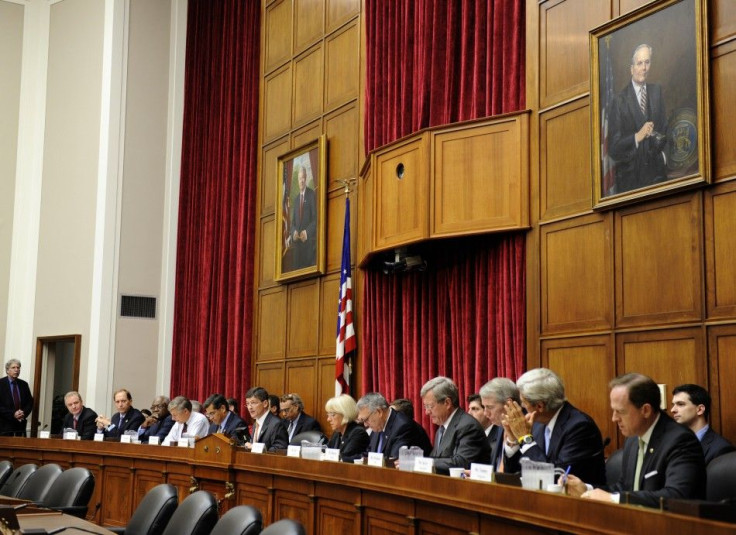GOP Debt Fix Dismissed by Super Committee Democrats

The Republican members of the Congressional budget deficit super committee offered a mixed bag of reduced deductions and tax cuts in an effort to jumpstart discussions to close at least a $1.2 trillion hole in the national deficit. But the plan was dismissed by Democrats as minimal in concessions, according to various reports.
The offer is part of a larger plan that would lower marginal income tax rates while also bringing the committee $300 billion closer to its $1.2 trillion dollar deficit reduction goal, according to POLITICO. Taken together with a change in how the government measures cost of living increases for both retirees and the workforce, Republicans felt they made a significant concession in departing from their steadfast opposition to any revenue increases.
Democrats on the super committee, as well as anonymous aides, told various outlets the proposal did not come close to their demands of tax increases via rises in rates for top earners.
I'll be very clear: Whatever they've put out there doesn't get the job done, said U.S. Sen. John Kerry, D-Mass., according to POLITCO. I would not characterize it as substantial change, but it's a change. [...] We've been very clear that there has to be some additional tax revenue.
The Republican offer, brought by U.S. Sen. Pat Toomey, R-Pa., cuts $1.2 trillion from the deficit over the next decade. It is a reported mix of $770 billion in spending cuts and up to $600 billion in new revenue from a mixed bag of sources, according to POLITICO. It would also lower the Bush-tax cuts' marginal rates for top earners to 28 percent, which the Democrats vehemently oppose.
I have yet to see a real, credible plan that raises revenue in a significant way to bring us to a fair, balanced proposal, said U.S. Sen. Patty Murray, D-Wash., co-chair of the super committee, according to the AP.
But with the super committee Nov. 23 deadline two weeks away, and both parties remaining trillions of dollars away from an agreement, the prospect of an insurmountable impasse is becoming a reality.
The New York Times reports that both parties, especially Republicans, are publicizing their efforts within the committee to portray the opposition as the content with the super committee's failure.
McConnell Rebukes White House
Senate Minority Leader Mitch McConnell accused, folks down at the White House are pulling for failure in order to push a continuing portrayal of Republicans as the party of no, according to the Times.
I can tell you with certainty that the six Republicans on the joint select committee want an outcome, do not believe failure is an option, and we are working towards that end as diligently as we can, he added, according to POLITICO.
Congressional Democrats have gone through pains to portray Republican offers as token gestures.
If you want to make a big deal, you can't get real revenues without tax revenues, said U.S. Sen. Chuck Schumer, D-N.Y., according to POLITICO.
Included in those revenues are increases on the tax rate for capital gains and dividends, which the Republicans reportedly staunchly oppose.
The difficulty we find is that in every one of these discussions, Grover Norquist seems to be in the room, said Senate Majority Leader Harry Reid, D-Nev., according to POLITICO. And as we indicated last night, he is quite sure that there will be nothing done with tax revenues.
The super committee, formally known as the Joint Select Committee on Deficit Reduction, was established as part of a deficit reduction deal, the Budget Control Act, in exchange for raising the nation's debt ceiling on Aug. 2. While the U.S. government was allowed to borrow up to $2.4 trillion more through 2013, the super committee was charged with reaching a bipartisan consensus on at least $1.2 trillion in deficit reduction over the next decade, in addition to the roughly $900 billion in deficit reduction Congressional Republicans and President Barack Obama agreed to as part of the August debt deal.
Congress then has until Dec. 23 to pass the committee's recommendations, otherwise trigger cuts, in the form of slashes to defense spending and Medicare benefits, would be automatically enacted.
© Copyright IBTimes 2025. All rights reserved.




















